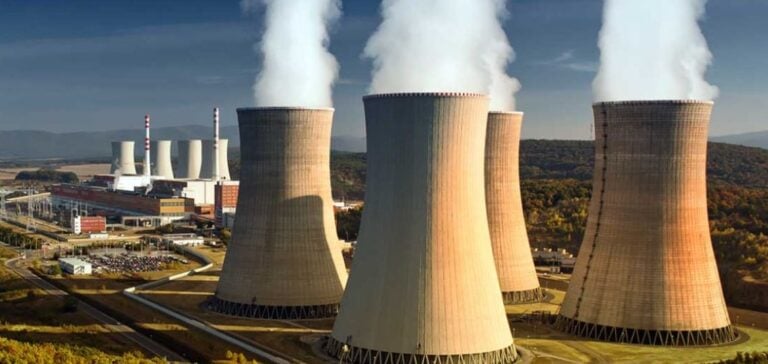The Czech energy group EPH has finalized the acquisition of a majority stake in Slovenske Elektrarne, Slovakia’s largest electricity producer. This transaction, valued at 150 million euros, is part of a strategy to strengthen its position in the European energy market, particularly in the nuclear sector.
EPH acquired 50% of Slovak Power Holding (SPH), which holds two-thirds of Slovenske Elektrarne, from the Italian company Enel. The other half of SPH had already been purchased by EPH in 2016. The deal also includes the settlement of financial commitments related to this stake: 970 million euros in loans provided by Enel to Slovenske Elektrarne and 158 million euros in unpaid interest.
Strategic energy production
With an annual production of 21.66 terawatt-hours in 2023, primarily from the nuclear plants in Jaslovske Bohunice and Mochovce, Slovenske Elektrarne plays a critical role in the energy supply of Slovakia and the region. The Slovak government retains a 34% stake in the company, ensuring partial control over this strategic asset.
Impact on the European market
This acquisition strengthens EPH’s position among the ten largest electricity producers in Europe. The group operates in nine countries, including the United Kingdom, France, and Germany. This geographic diversification underscores its strategy to expand within the European energy market, focusing on essential assets, particularly in the nuclear sector.
Geopolitical and financial context
The transaction takes place in an energy landscape marked by major reorganizations, where players like Enel are divesting from certain markets to streamline their asset portfolios. By targeting these acquisitions, EPH increases its influence while taking on significant financial commitments. This calculated risk highlights the group’s intent to solidify its role in the market while addressing geopolitical and economic challenges.





















